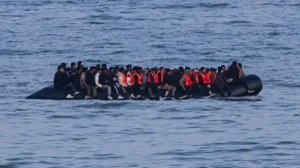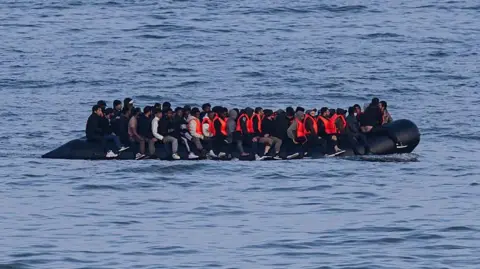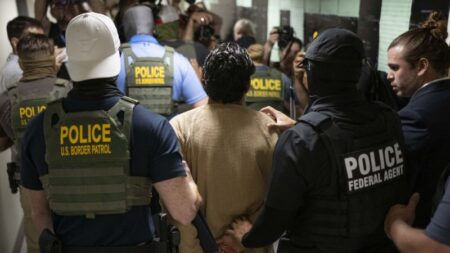Germany is gearing up to tighten its laws against people smuggling, particularly aimed at gangs involved in trafficking migrants to the United Kingdom. This move coincides with the recently announced collaboration between German Chancellor Friedrich Merz and UK officials, reflecting shared concerns over migration, business, and defense issues. The agreement is set to be signed during Chancellor Merz’s inaugural visit to the UK, strengthening bilateral relations amidst ongoing challenges.
The proposed legal adjustment in Germany will make it explicitly illegal to facilitate illegal migration to the UK. Currently, under German law, such actions aren’t considered illegal when they involve destinations outside the European Union, a classification that now applies to the UK due to Brexit. This regulatory change aims to empower German authorities to mount more effective investigations and interventions against smugglers who utilize warehouses and other facilities to store boats meant for illegal crossings of the English Channel.
Previously, in December, an agreement had been reached to tighten legislation regarding people smuggling, albeit under the prior administration. The expectations surrounding the new chancellor’s commitment to enforcing these changes by the year’s end mark a significant shift in Germany’s approach. Notably, a BBC investigation from the previous year highlighted Germany’s pivotal role in facilitating small boat crossings, pinpointing the nation as a crucial hub for hiding boats and engines used in illicit activities.
The UK Prime Minister, Sir Keir Starmer, expressed his support for Chancellor Merz’s intention to amend German laws aiming to dismantle the operations of those smuggling vulnerable individuals across the Channel. This initiative comes in conjunction with a pilot returns scheme recently unveiled by the UK and France, which allows for some asylum seekers arriving via small boats to be returned to France, while equivalent numbers of individuals with connections to the UK will be accepted.
There is growing pressure on Prime Minister Starmer from various fronts to effectively address the increasing number of crossings. So far in 2025, over 21,000 individuals have made the perilous journey across the Channel, representing a 56% increase from the same period the previous year. Tory shadow home secretary Chris Philp criticized the statistics, labeling the situation as an ongoing crisis and dismissing Starmer’s plans as inadequate measures aimed merely at gaining public attention.
In tandem with discussions on migration, the leaders from the UK and Germany will focus on defense and security matters. They are expected to introduce new initiatives that commit to bolstering UK defense exports, including armored vehicles and advanced jets, through cooperative export activities. This initiative is projected to generate substantial economic growth, with an anticipated increase in defense exports amounting to billions of pounds over the coming years.
Moreover, the establishment of a UK-Germany Business Forum is on the agenda, designed to promote investment and collaboration between the two nations. Coinciding with the Chancellor’s visit, several commercial investments exceeding £200 million have been announced. Notable among these is defense technology company STARK, which plans to create approximately 100 jobs by opening a new facility in Swindon, marking its first expansion outside Germany.
In summary, the forthcoming regulatory changes in Germany represent a concerted effort to combat people smuggling while fostering closer ties with the UK over broader economic and security issues. The imminent partnership between the two countries highlights a proactive approach to managing the increasingly complex landscape of migration and defense in Europe.











